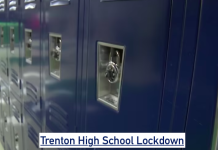Navigating the complexities of property transactions can be a daunting task. This is where a conveyancer becomes indispensable.
Their knowledge of the law and their expert guidance provide assurance during such significant financial undertakings.
This blog post aims to demystify the role of a conveyancer, explain the ins and outs of the conveyancing process, and underline the importance of their involvement in successful property transactions.
Join us as we explore the integral part a conveyancer plays in the world of real estate.
The Conveyancer
A conveyancer is a licensed professional who manages all the legal aspects of buying or selling a property.
Their key duties include preparing and clarifying legal documents like contract of sale and transfer of land, conducting research about the property to inform clients of any restrictions or caveats, ensuring all necessary payments such as stamp duties and fees are made, and facilitating the final settlement.
Their role doesn’t stop at paperwork, though. Conveyancers also provide valuable advice to their clients, help them understand the complex terms and conditions in the contracts, and safeguard their rights during the transaction.
Furthermore, they are critical during negotiations, liaising between the buyer, seller, mortgage lender, and other legal representatives involved.
In essence, a conveyancer’s expertise simplifies the complex process of property transactions, making it smoother and less stressful for their clients.
Understanding the Legal Aspects of Conveyancing
Conveyancing is deeply embedded in the legal landscape. It involves a multitude of laws related to property, contract, and equity.
The legal facets of conveyancing are designed to protect all parties involved in a property transaction, ensuring a fair and equitable process.
A conveyancer’s primary task is to understand and apply these laws effectively.
They need to be familiar with federal, state, and local laws, as well as any amendments made over time.
This understanding enables them to handle the legal paperwork, examine the property’s title for any defects or restrictions, and ensure compliance with various regulations.
Conveyancers also play a vital role in resolving legal issues that may arise during the transaction, such as disputes over boundaries or rights of way.
Their proficiency in understanding and applying property law ensures their clients’ interests are always protected, thereby underscoring the importance of their role in a property transaction.
The Process of Conveyancing
Conveyancing is a multi-stage process, and each stage is crucial for the successful completion of a property transaction.
Contract Drafting and Property Inspections
Conveyancing begins with the conveyancer preparing essential legal documents, including the contract of sale and memorandum of transfer.
Simultaneously, they conduct property inspections and searches to uncover potential issues that may affect the transaction.
Exchange of Contracts and Cooling-Off Period
After the initial stage, the process proceeds to the exchange of contracts. The buyer and seller formally agree to the transaction’s terms, facilitated by the conveyancer to ensure all conditions are understood.
Following this exchange, there’s typically a cooling-off period, allowing the buyer an opportunity to back out if necessary.
Completion, Settlement and Post-Settlement
The final stage involves the completion and settlement of the property transaction. The conveyancer ensures all necessary payments, such as fees and taxes, are made.
They also facilitate the correct transfer of the title to the new owner and make sure the remaining funds reach the seller.
Post-settlement, the conveyancer takes care of the registration of the new owner with the land registry.
Throughout these stages, the conveyancer provides expert advice, navigates legal hurdles, and ensures a legally sound and smooth property transaction process.
The Conveyancer and the Property Buyer
When buying a property, one must navigate a maze of legalities, paperwork, and fine print.
Here, the expertise of a conveyancer is invaluable. They guide buyers through the entire process, making sure that the transaction is transparent, legal, and in the buyer’s best interest.
Conveyancers carry out comprehensive property searches to identify potential issues like liens or zoning restrictions that could impact the property’s value or the buyer’s intended use.
They also interpret complex contractual terms, negotiate amendments if needed, and facilitate a smooth transfer of ownership.
Beyond just the transaction, a conveyancer advises buyers on their obligations like property taxes and homeowners’ insurance.
By simplifying the intricate process and ensuring the buyer’s rights are safeguarded, a conveyancer plays a pivotal role in a property purchase.
The Conveyancer and the Property Seller
A conveyancer’s role is equally critical when selling a property. They ensure that all legal obligations are met and the process proceeds without hiccups.
The conveyancer prepares the contract of sale, detailing property specifics and transaction terms. They provide guidance on disclosure obligations, ensuring sellers understand and adhere to laws about revealing any defects or issues with the property.
Moreover, they manage the settlement process, facilitating the payoff of any existing mortgages and ensuring the remaining funds are accurately transferred to the seller.
If any disputes arise during the transaction, the conveyancer represents the seller’s interests, helping negotiate resolutions or engage further legal support if necessary.
By managing these intricate details, a conveyancer provides sellers with peace of mind, allowing them to focus on the next steps in their property journey.
Choosing the Right Conveyancer: Factors to Consider
Professional Qualifications and Experience
When selecting a conveyancer, ensure they have the right qualifications and licenses to operate in your area.
Look for a professional with relevant experience, particularly in handling transactions similar to yours.
Communication and Clarity of Services
Good communication is crucial for a smooth conveyancing process. Your conveyancer should be able to explain complex legal terms in plain language and keep you updated about the progress of the transaction.
Clarity about their services and what’s included in their fee is also important.
Cost Considerations and Transparency
Conveyancing costs can vary, so it’s essential to understand what you’re paying for. Seek a detailed quote that breaks down all costs, and avoid any conveyancer who isn’t upfront about their fees.
Choosing the right conveyancer can significantly influence your property transaction’s success, so it’s worth investing time and effort in this decision.
Technology and the Role of the Conveyancer
In an increasingly digital world, the conveyancing process is also experiencing significant shifts. Technology is creating new ways to streamline transactions and make information more accessible.
Online conveyancing platforms now allow documents to be exchanged and signed digitally, speeding up the process.
Despite these changes, the role of a conveyancer remains crucial. Their expertise in navigating legal complexities ensures that even as technology simplifies the process, the legal integrity of property transactions is preserved.
In the future, the most successful conveyancers will be those who effectively combine traditional knowledge with these new technological tools.
Conclusion
The conveyancer’s role is pivotal in the intricate world of property transactions. From legal document preparation to resolving disputes, their expertise simplifies a complex process and offers peace of mind to buyers and sellers alike.
The choice of conveyancer can significantly impact the transaction’s success, making it essential to consider factors like qualifications, communication, and cost.
Even as technology transforms the landscape, the value of a competent conveyancer remains.
Ultimately, the blend of traditional knowledge and adaptation to modern tools will define the conveyancer’s future, ensuring they continue to provide indispensable support in our real estate journeys.






















